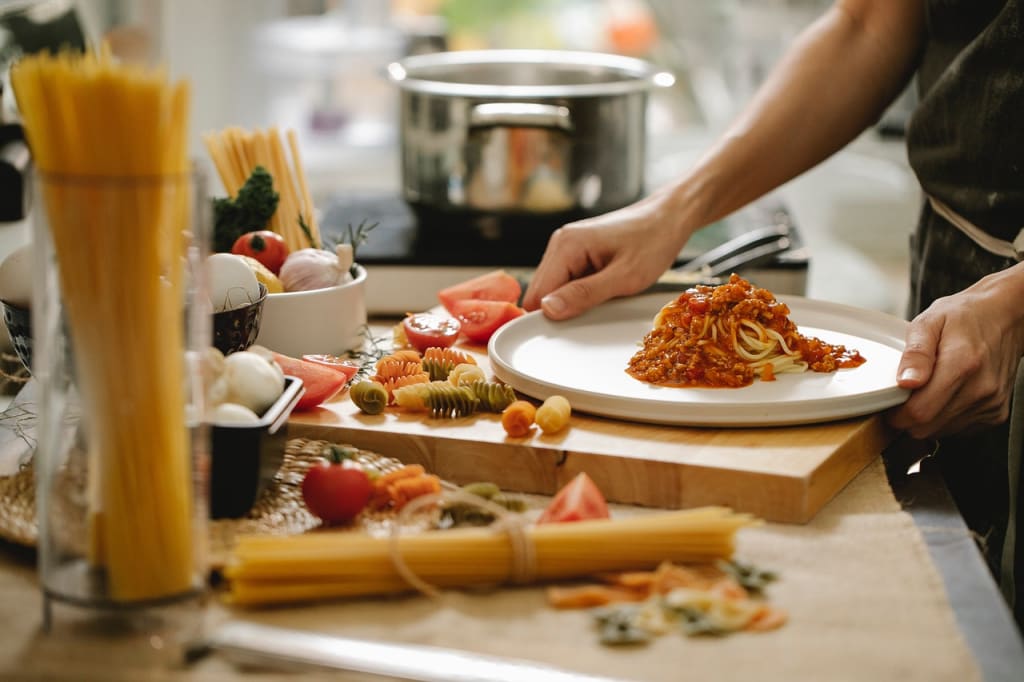Meal prepping can save time during busy evenings
By planning meals, shopping strategically, and dedicating a few hours to preparation each week, you can enjoy the convenience of ready-to-eat meals without the stress and time commitment of daily cooking

Finding time to prepare a nutritious meal after a long day can be challenging. However, meal prepping offers a practical solution that not only saves time during busy evenings but also promotes healthier eating habits.
Meal prepping involves preparing meals or components of meals ahead of time, which can significantly reduce the time and stress associated with daily cooking. Research published in the Journal of Nutrition Education and Behavior indicates that individuals who engage in meal prepping are more likely to consume a balanced diet and maintain a healthy weight. This is largely because meal prepping encourages portion control and reduces the reliance on fast food or takeout, which are often high in calories, fats, and sugars.
Key Benefits of Meal Prepping
Time Savings: By dedicating a few hours each week to meal prep, you can save a significant amount of time on busy weeknights. Prepping ingredients or complete meals in advance means that you only need to reheat or assemble your dinner, reducing the time spent in the kitchen.
Healthier Eating Habits: Meal prepping allows you to plan balanced meals that include a variety of nutrients. This intentional planning helps ensure that you’re eating a well-rounded diet, which can lead to better overall health.
Portion Control: Preparing meals in advance allows you to portion out servings according to your dietary needs. This can help prevent overeating and support weight management goals.
Reduced Stress: Knowing that meals are ready to go can alleviate the stress of deciding what to cook each day. This can be particularly beneficial on hectic evenings when time is limited.
Practical Tips for Successful Meal Prepping
Start Small: If you’re new to meal prepping, start with a few meals per week. Gradually increase the number of prepped meals as you become more comfortable with the process.
Plan Your Menu: Create a weekly meal plan that includes breakfast, lunch, and dinner. Choose recipes that can be easily scaled up and stored for several days.
Make a Shopping List: Based on your meal plan, make a comprehensive shopping list. This ensures you have all the necessary ingredients on hand, reducing the need for last-minute grocery runs.
Choose the Right Containers: Invest in high-quality, reusable containers that are microwave-safe and easy to clean. Using uniform containers can help with organization and storage.
Batch Cooking: Prepare large quantities of staple ingredients like grains, proteins, and vegetables. These can be mixed and matched to create different meals throughout the week.
Utilize Freezing: Many prepped meals can be frozen for later use. Soups, stews, casseroles, and cooked proteins often freeze well and can be easily reheated.
Here’s an example of a basic meal prep routine to get you started:
Sunday Afternoon:
Plan the Week’s Menu: Decide on five dinners, a few lunches, and some quick breakfast options.
Grocery Shopping: Purchase all the ingredients needed for the week.
Prep Ingredients: Wash and chop vegetables, cook grains like rice or quinoa, and prepare proteins such as chicken, tofu, or beans.
Meal Prep Menu:
Breakfast: Overnight oats with fruit, hard-boiled eggs, and yogurt parfaits.
Lunch: Quinoa salad with vegetables and chicken, mason jar salads, and vegetable wraps.
Dinner: Stir-fry with rice, baked salmon with roasted vegetables, pasta with homemade sauce, and slow cooker chili.
The Broader Benefits of Meal Prepping
Financial Savings: By planning and preparing meals in advance, you can reduce the amount of money spent on takeout and impulsive grocery purchases. Bulk buying ingredients and cooking at home is generally more cost-effective than eating out.
Environmental Impact: Meal prepping can also have a positive impact on the environment. By using reusable containers and buying in bulk, you reduce the amount of packaging waste. Additionally, having a meal plan can help reduce food waste, as you’re more likely to use all the ingredients you purchase.
Consistency and Routine: Establishing a meal prep routine can help create consistency in your eating habits. Regular, balanced meals can improve energy levels, support better digestion, and contribute to overall well-being.
Despite the clear benefits, some people may find meal prepping daunting. Here are strategies to overcome common challenges:
Time Investment: The initial time investment for meal prepping can be off-putting. However, once you establish a routine, the process becomes more efficient. Start with a simple plan and gradually build up to more complex meals.
Lack of Variety: Eating the same meals repeatedly can become monotonous. To keep things interesting, rotate recipes and incorporate seasonal ingredients. Experiment with different cuisines and cooking methods to add variety.
Storage Issues: If you’re short on storage space, consider prepping ingredients rather than complete meals. This way, you can mix and match components to create different meals without needing extensive storage space.
About the Creator
Enjoyed the story? Support the Creator.
Subscribe for free to receive all their stories in your feed. You could also pledge your support or give them a one-off tip, letting them know you appreciate their work.






Comments
There are no comments for this story
Be the first to respond and start the conversation.